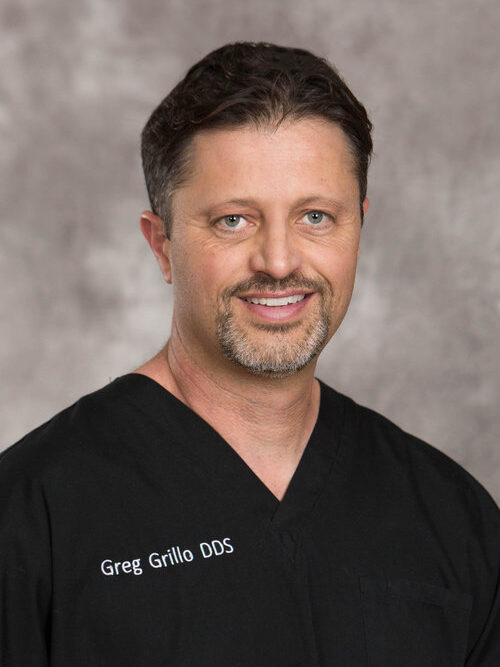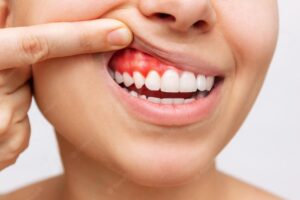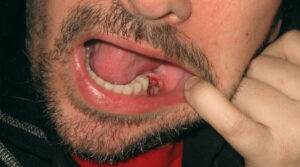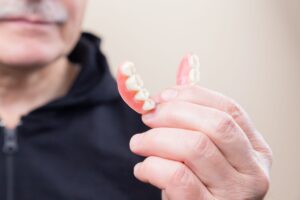Thumbsucking is a common reflex for many babies and some older children. They use it to soothe themselves. Young kids suck on their thumb/fingers or objects like pacifiers to feel happier and more secure. Some use it to help themselves fall asleep. But can thumbsucking affect your child’s teeth and oral health? Please continue reading to find out.
Does thumbsucking have an effect on my child’s teeth?
Thumbsucking can affect your child’s teeth, especially after the permanent teeth erupt. Sucking on fingers, thumbs, or other objects including pacifiers can cause misalignment of the teeth in your child’s mouth. Meaning, it can affect how the teeth line up. This practice can also cause problems in the palate (roof of the mouth).
What problems can thumbsucking cause?
The severity of the thumb sucking habit makes a difference. If your child simply puts their thumb in their mouth and leaves it there passively, it may not cause much harm. Intense, aggressive, or vigorous sucking, on the other hand, can cause problems. The problems can occur with permanent teeth, and less commonly, milk teeth (baby teeth).
Other negative effects of thumbsucking including problems with the child’s growth and speech development. The thumb sucking habit can lead to problems like lisping and other speech impediments. It can also cause problems with eating. Over time, thumb sucking can cause an overbite or underbite or make the palate more sensitive. Moreover, thumbsucking is linked to deformed nails, sore thumbs, calluses, and infections.
At what age do children usually stop sucking on fingers and thumbs?
Thumb sucking is very normal for babies. They do it to find comfort and soothe themselves. But should your 3-year-old still be sucking on her thumb?
Pediatricians say that children typically stop with this habit between age 2 and 4 years old. By this age, kids usually develop other coping mechanisms. For example, language skills to tell a parent or caretaker what they need.
Some children find it harder to kick the thumbsucking habit, however. This can cause problems in a child’s growing mouth and jaw.
How do I stop my child from sucking their thumb?
Thumb sucking is not something to worry about if your child is less than 4 years old. If your child is older, it is a good idea to involve them in the process. Stopping thumbsucking in older kids is usually more successful when the child wants to stop. It also helps if the child agrees with the method you choose.
Keep in mind that some children use thumbsucking to get attention. In such cases, it might help to simply ignore the habit so that it doesn’t get reinforced as an attention-seeking behavior.
Some of the methods that can help children to stop sucking their thumbs include:
- Offering positive reinforcement with small rewards or verbal praise for not sucking on the thumb during times when the practice is common, such as at bedtime or when the child is upset.
- Identifying triggers for thumb sucking, such as in response to anxiety, and offering reassurance or a hug to comfort the child at such times of stress.
- Providing gentle reminders without ridiculing or scolding the child.
- Having a dentist talk to the child about why it’s important to stop sucking on their thumb.
Finding a pediatric dentist
While thumbsucking can be a difficult habit to kick, most kids outgrow it eventually. If your child is over the age of 4 and is still sucking on their thumb, try not to worry too much. In severe cases, your pediatrician or dentist may recommend measures such as putting something bitter on the thumb or bandaging the thumb, but this is usually not necessary.
If you’re looking for a dental professional who specializes in providing dental care for children, Express Dentist has a trusted network of experienced pediatric dentists across the country. Whether it is thumbsucking or some other common childhood dental problem like caries, timely intervention by a dentist can help prevent serious complications. Call Express Dentist today and connect with a top-rated children’s dentist in your area to optimize your child’s oral health.
About the author

Dr. Greg Grillo
Dr. Greg Grillo DDS studied at the University of Washington where he received a bachelors degree with Honors and later attended dental school on the same campus. Following school Dr. Greg served in the United States Navy as a dental officer. During this time he received advanced training in specialty areas of dentistry while also treating families of members of the military.
As well as sharing valuable information on dentistry and oral health, Dr. Greg remains a practicing dentist to this day. He works with families in the Okanogan Valley where he lives with his wife and three children.
- Dr. Greg Grillo
- Dr. Greg Grillo
- Dr. Greg Grillo
- Dr. Greg Grillo
- Dr. Greg Grillo
- Dr. Greg Grillo
- Dr. Greg Grillo
- Dr. Greg Grillo
- Dr. Greg Grillo
- Dr. Greg Grillo
- Dr. Greg Grillo
- Dr. Greg Grillo
- Dr. Greg Grillo
- Dr. Greg Grillo
- Dr. Greg Grillo
- Dr. Greg Grillo
- Dr. Greg Grillo
- Dr. Greg Grillo
- Dr. Greg Grillo
- Dr. Greg Grillo
- Dr. Greg Grillo
- Dr. Greg Grillo
- Dr. Greg Grillo
- Dr. Greg Grillo
- Dr. Greg Grillo
- Dr. Greg Grillo
- Dr. Greg Grillo
- Dr. Greg Grillo
- Dr. Greg Grillo
- Dr. Greg Grillo
- Dr. Greg Grillo
- Dr. Greg Grillo
- Dr. Greg Grillo
- Dr. Greg Grillo
- Dr. Greg Grillo
- Dr. Greg Grillo
- Dr. Greg Grillo
- Dr. Greg Grillo
- Dr. Greg Grillo
- Dr. Greg Grillo
- Dr. Greg Grillo
- Dr. Greg Grillo
- Dr. Greg Grillo
- Dr. Greg Grillo
- Dr. Greg Grillo
- Dr. Greg Grillo
- Dr. Greg Grillo
- Dr. Greg Grillo
- Dr. Greg Grillo
- Dr. Greg Grillo
- Dr. Greg Grillo
- Dr. Greg Grillo
- Dr. Greg Grillo
- Dr. Greg Grillo
- Dr. Greg Grillo
- Dr. Greg Grillo
- Dr. Greg Grillo
- Dr. Greg Grillo
- Dr. Greg Grillo
- Dr. Greg Grillo
- Dr. Greg Grillo
- Dr. Greg Grillo
- Dr. Greg Grillo
- Dr. Greg Grillo
- Dr. Greg Grillo
- Dr. Greg Grillo
- Dr. Greg Grillo
- Dr. Greg Grillo
- Dr. Greg Grillo
- Dr. Greg Grillo
- Dr. Greg Grillo
- Dr. Greg Grillo
- Dr. Greg Grillo
- Dr. Greg Grillo
- Dr. Greg Grillo
- Dr. Greg Grillo
- Dr. Greg Grillo
- Dr. Greg Grillo
- Dr. Greg Grillo
- Dr. Greg Grillo
- Dr. Greg Grillo
- Dr. Greg Grillo
- Dr. Greg Grillo
- Dr. Greg Grillo
- Dr. Greg Grillo
- Dr. Greg Grillo
- Dr. Greg Grillo
- Dr. Greg Grillo
- Dr. Greg Grillo
- Dr. Greg Grillo
- Dr. Greg Grillo




